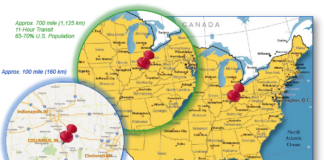West Fraser, a North American timber producer, will expand its Newberry County, South Carolina, sawmill for the third time in a decade — bringing 30 new jobs to the region.
The $17.7 million investment is expected to begin operating in early 2024, according to the South Carolina Department of Commerce.
Gov. Henry McMaster said the state is proud Newberry County has proven itself as a “viable location” for the timber producer.
“By providing a strong and dedicated workforce and supporting West Fraser’s vision, South Carolina plays a pivotal role in helping the company continue to expand its South Carolina presence,” McMaster said.
Similar to the 2014 and 2016 expansions, the latest addition will help West Fraser modernize and increase productivity.
“West Fraser is excited to grow our presence in Newberry County,” said Chuck Watkins, West Fraser Vice President of Capital and Technology. “This expansion and upgrades will ensure our Newberry facility is well equipped to compete in the global lumber markets and provide quality products to our customers for many years to come. Many thanks to the county of Newberry and the greater Newberry community, who supported this project and built a competitive investment climate with a skilled labor force, making Newberry an ideal community to grow our business.”
Manufacturing is Newberry County’s largest industry and has an average wage of roughly $66,000, according to the South Carolina Department of Employment and Workforce’s Business Intelligence Department community profile on the county.
The same report names West Fraser among the county’s largest employers.
“West Fraser’s continuing investments in its Newberry sawmilling operations reflects its confidence in our state’s resilient forest resource and the many landowners who sustainably manage their forestland,” said State Forester Scott Phillips. “The abundance of healthy, fast-growing and privately managed wood in South Carolina makes the Palmetto State ripe for forest product-based capital investment and helps power our industry’s $23 billion economic impact.”












![[VIDEO] Get More for Your Business in Ardmore. Oklahoma](https://businessfacilities.com/wp-content/uploads/2024/02/maxresdefault-324x160.jpg)
